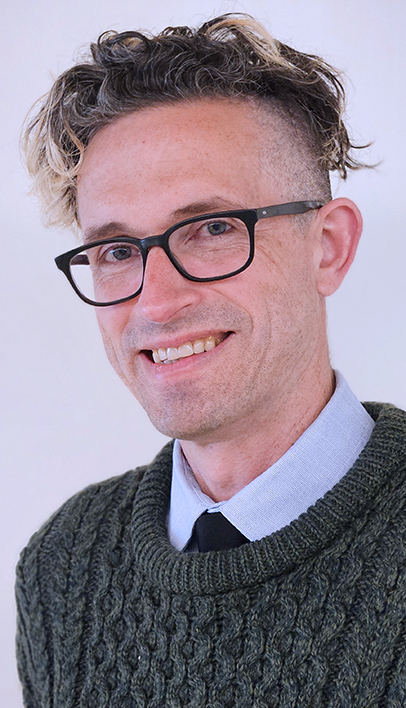KCC Ovations
CAORC Chooses KCC Anthropologist Ryan Chaney for Overseas Seminar in Mongolia

Kingsborough Community College anthropology professor Ryan Chaney is among 14 faculty members from US community colleges and minority-serving institutions who have been selected by the Council for American Overseas Research Centers (CAORC) to participate in an overseas faculty development seminar in Mongolia. The course, titled “Climate Change and Public Health: What Does Climate Change Mean for the People of Mongolia?” will focus on how climate change is already impacting public health and life in both urban centers and rural communities in Mongolia. It runs from the end of May 2024 through June 2024.
“Climate change as a human rights issue has been of growing interest to me in recent years, as well as environmental issues more generally,” noted Chaney. “Anthropology is the study of the human species, and climate change is a species-level threat. It is an existential question, not just a political or socioeconomic one.”
Though he hasn't conducted research abroad before, Chaney, who has done ethnographic fieldwork in Appalachia, sees the seminar as a chance to broaden his research and teaching to incorporate a broader global viewpoint on the connections between health, human rights, and climate change. “The Mongolia program description struck me with its reference to communities with limited infrastructure and lack of access to health resources, a concept that I could easily apply to both the Appalachian Virginia context of my research and the life contexts of many minority and immigrant students at Kingsborough.”
Chaney plans to incorporate case studies and perspectives gained from the seminar into two courses: a new environmental anthropology class he is co-designing with colleague Dr. Luz Martin del Campo and introducing a mandated hands-on component into his human rights course so it will qualify for civic engagement credit.
“I am hoping that my first-hand experience in Mongolia will enable me to bring an international scale to this mandate through concrete connections to climate-change case studies in Mongolia,” he said. “I envision small student groups selecting one of the United Nations' 17 Sustainable Development Goals that they believe represents a nexus of environmental and human rights concerns. Next, they will explore strategies for achieving and overcoming obstacles to the chosen goal, along with the fulfillment of its associated human rights, using a selected case from a range of specific environmental and public health issues affecting rural or urban Mongolian communities. The project's final component would be to find parallels or differences between those challenges and ones related to the same UN Development Goal faced by residents of outer-borough Brooklyn. Each group would report its findings to the college community via poster presentations.”
"True to its promise, ethnographic fieldwork required me to find connections with people in rural Appalachia with whom I had very little in common, at least on the surface," Chaney reflected. He aims to bring the same spirit of seeking human connections across differences to engage with communities in Mongolia.
CAORC, in collaboration with its member center in Mongolia, the American Center for Mongolian Studies, will administer the seminar, which will include stays in Ulaanbaatar, the urban capital; Kharkhorin, the historic capital of the Mongol Empire; and Hustai National Park, home to the rare and endangered Przewalski's horses. “On a personal level, I am very interested in various forms of Buddhist practice around the world, and we are going to get to visit Erdene Zuu Monastery, the oldest Buddhist monastery in Mongolia. That's quite exciting to me,” he concluded.
